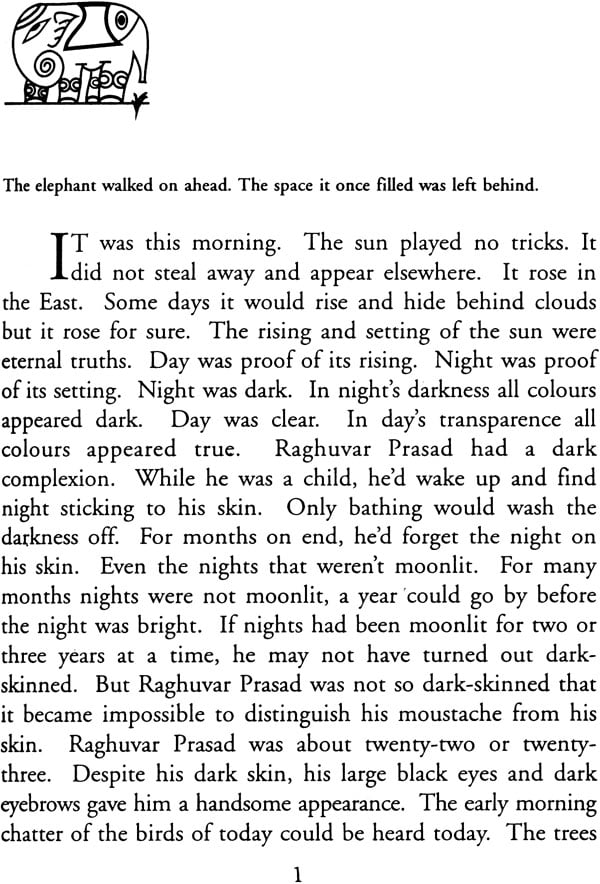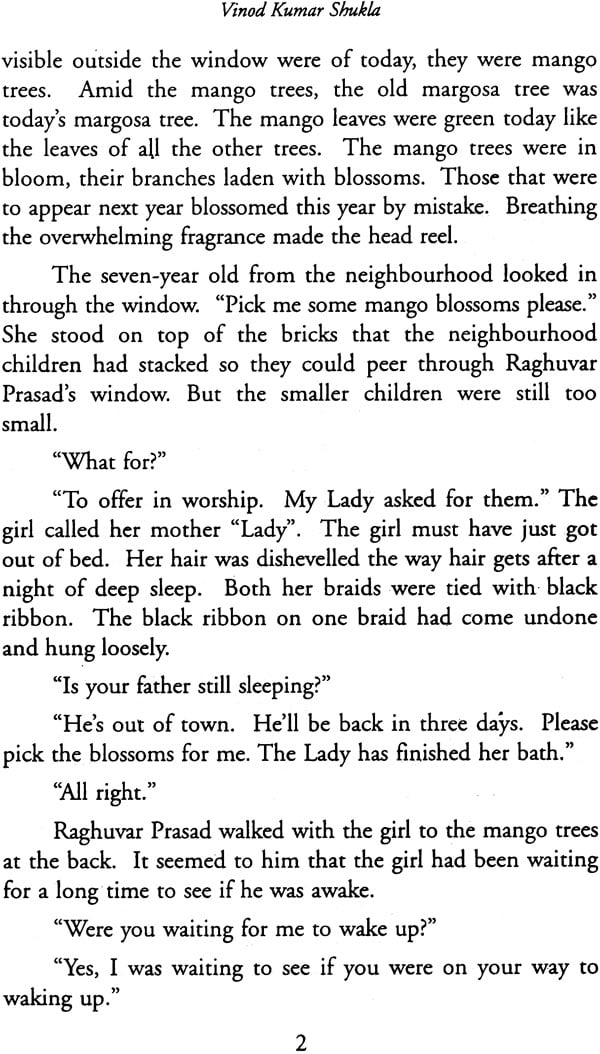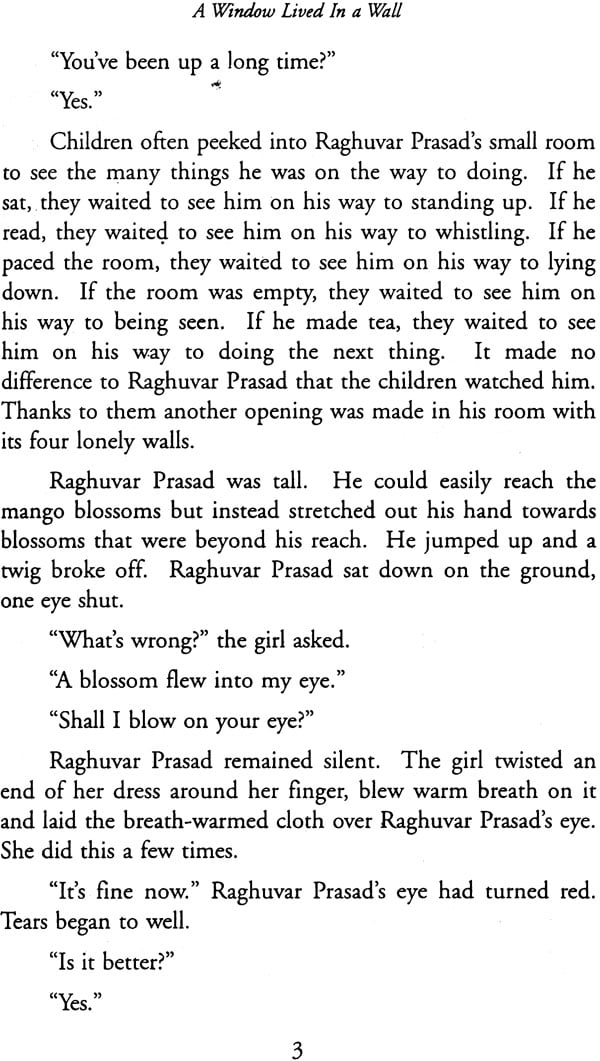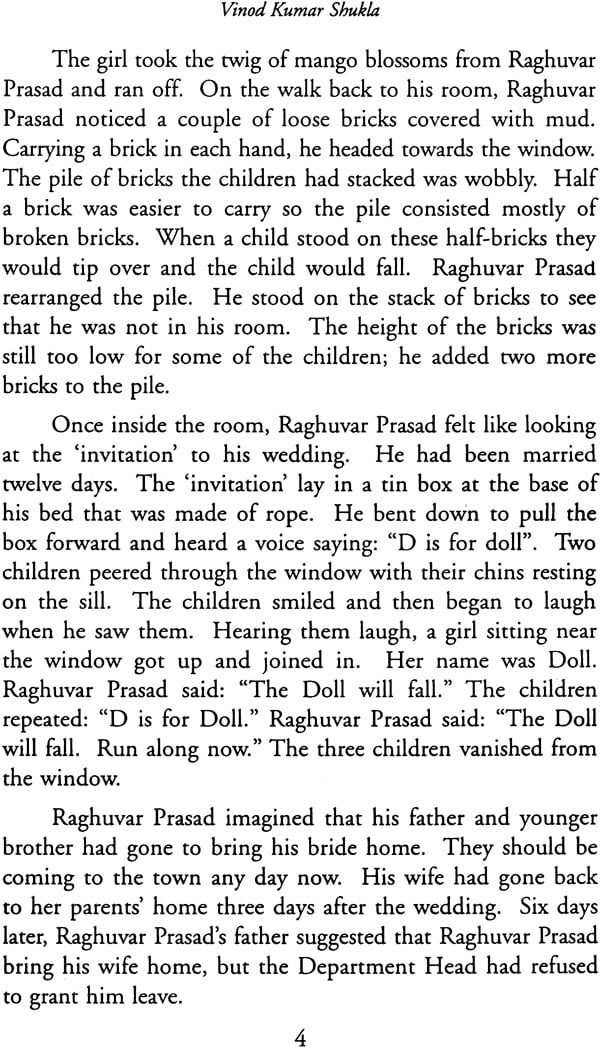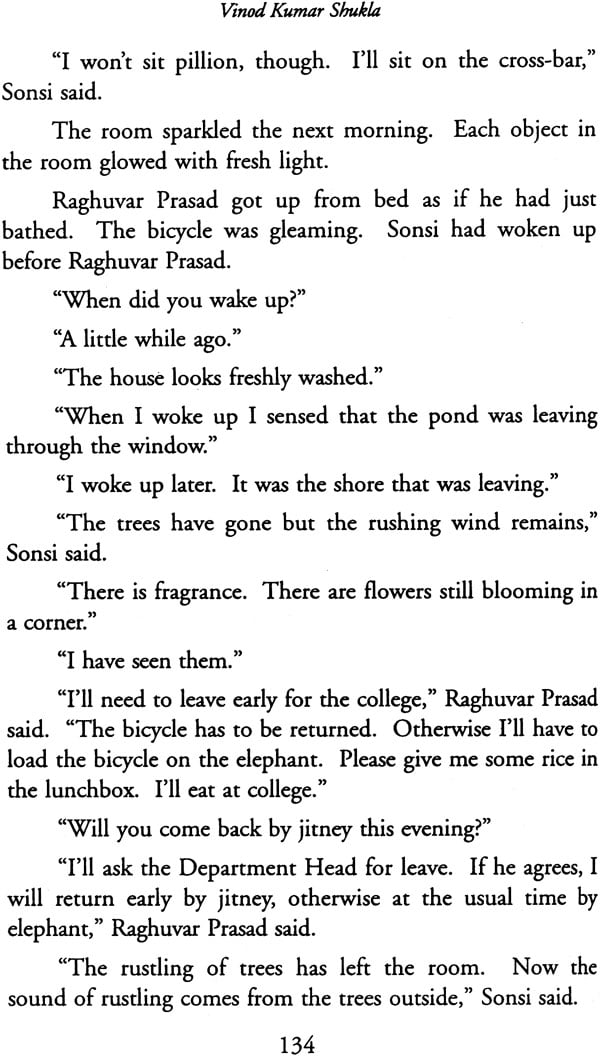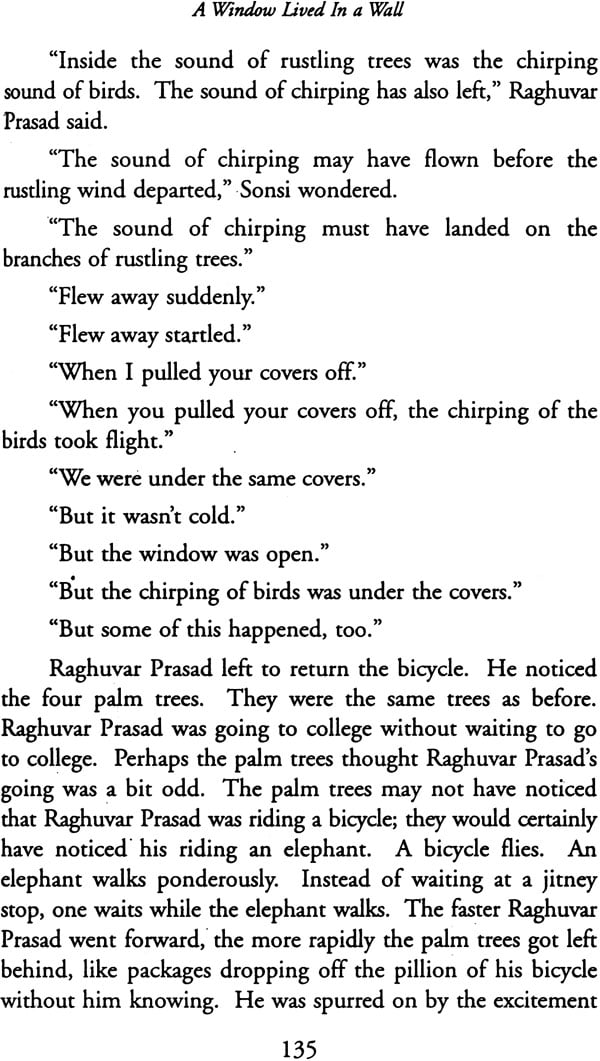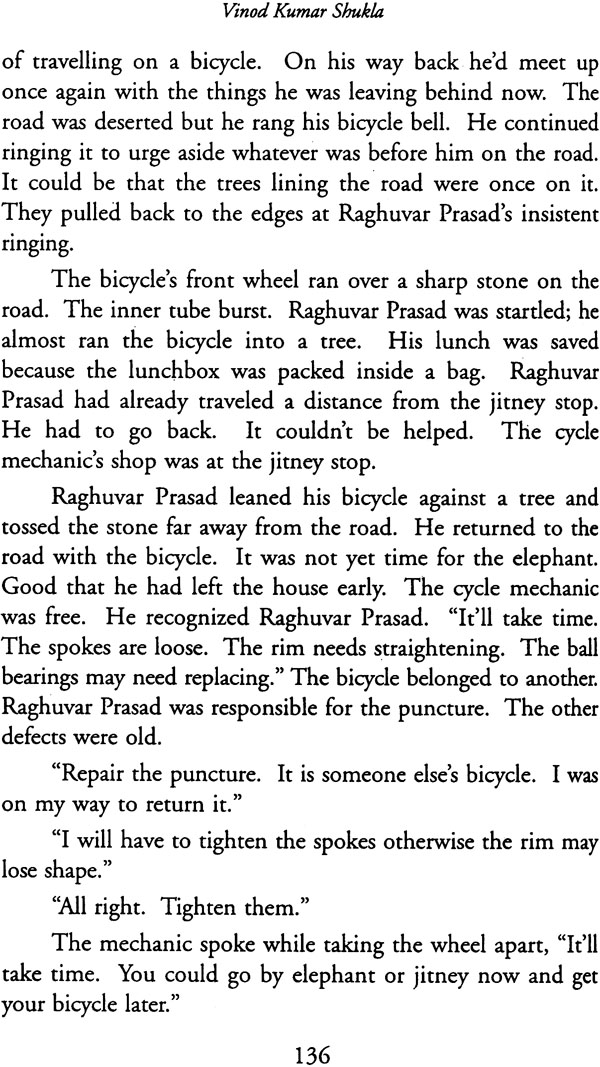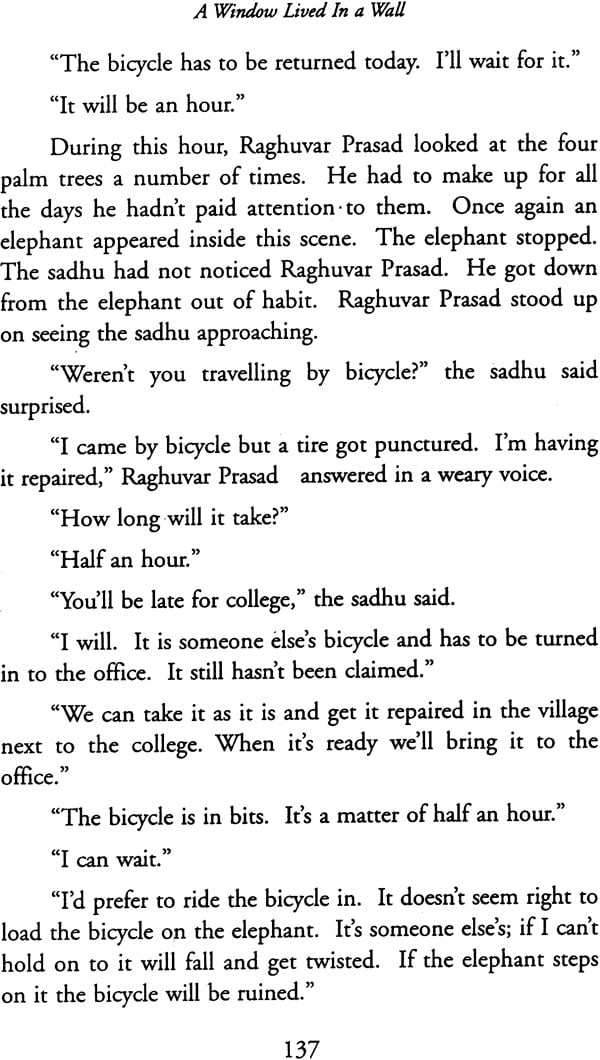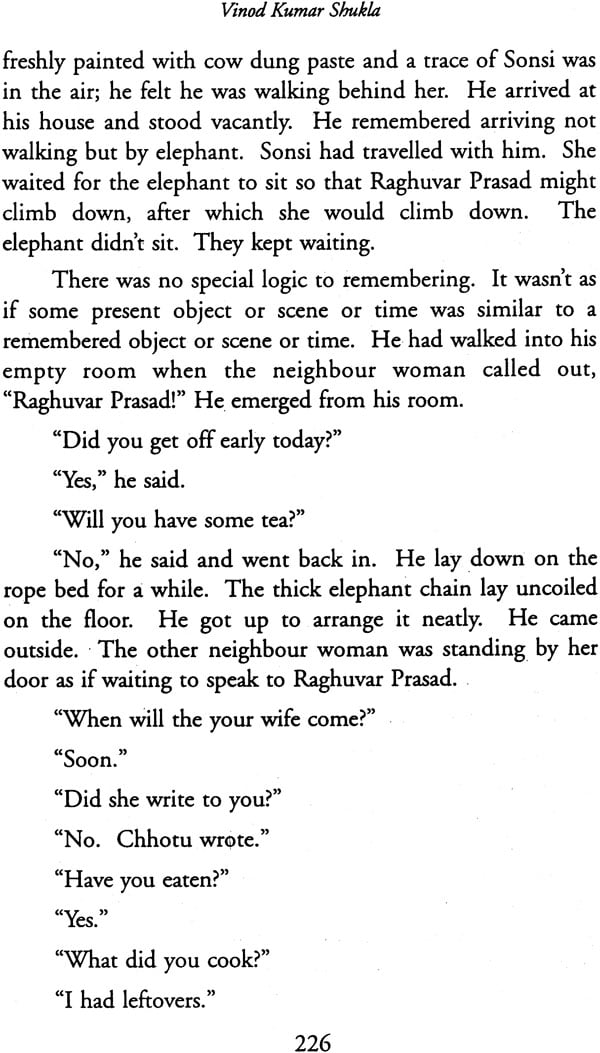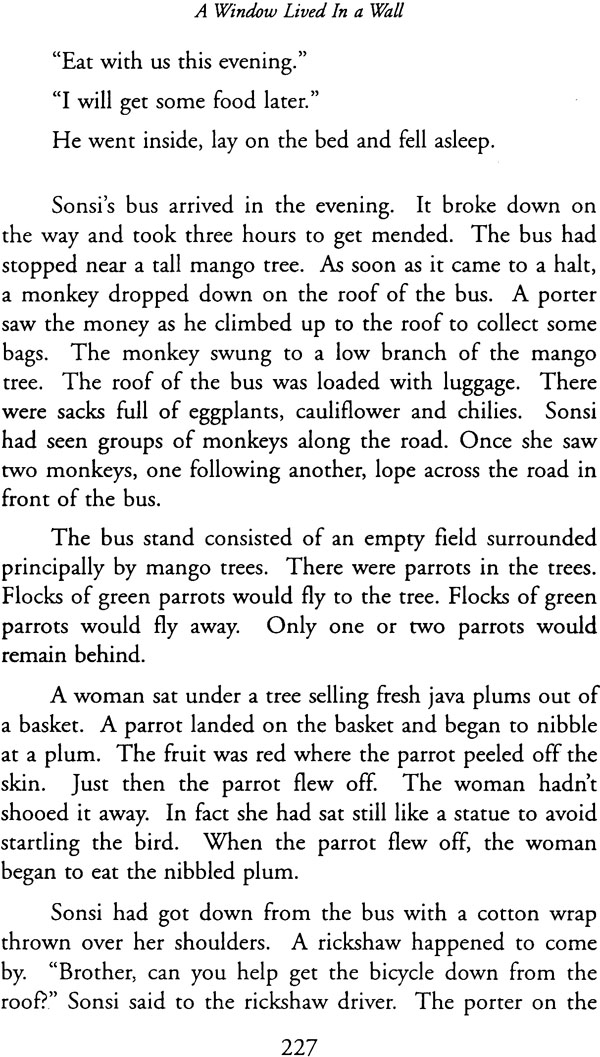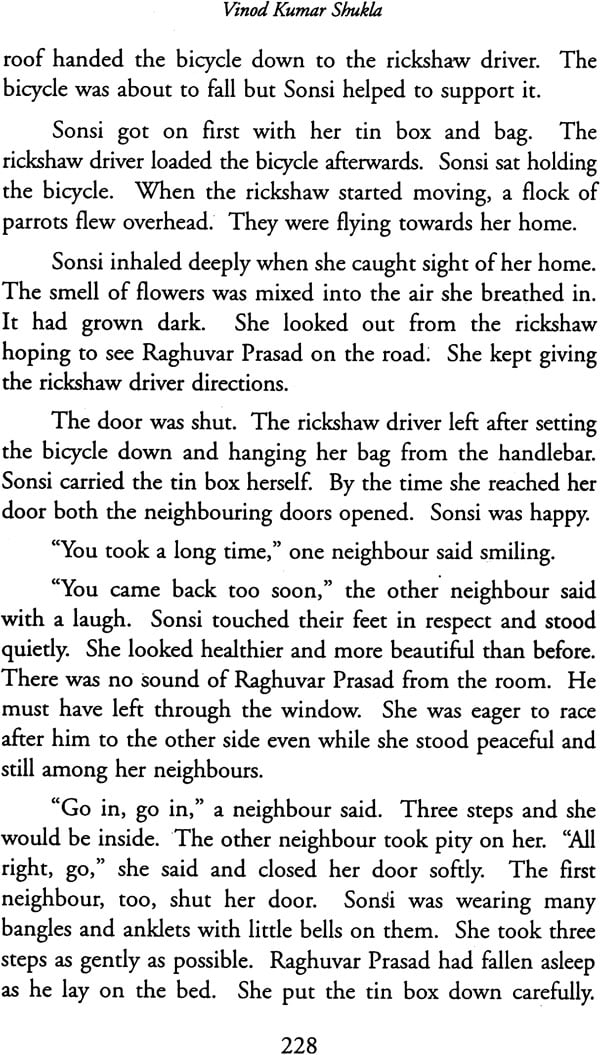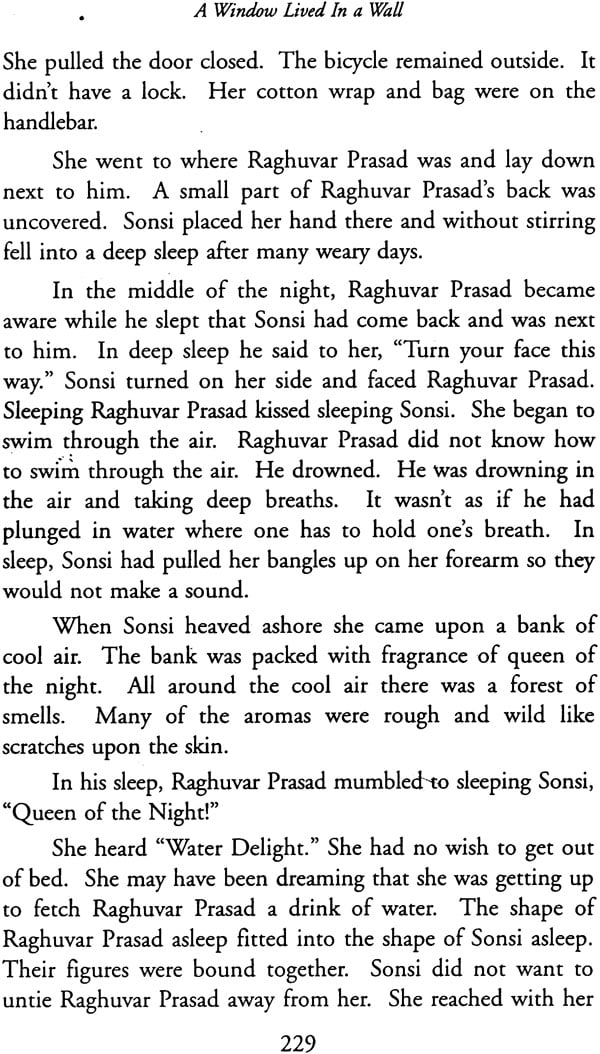
A Window Lived in a Wall
Book Specification
| Item Code: | IDG658 |
| Author: | Vinod Kumar Shukla, Translated By: Satti Khanna |
| Publisher: | Sahitya Akademi, Delhi |
| Language: | English |
| Edition: | 2009 |
| ISBN: | 8126021721 |
| Pages: | 231 |
| Cover: | Hardcover |
| Other Details | 8.9" X 5.7" |
| Weight | 440 gm |
Book Description
About the Book:
Raghuvar Prasad teaches Mathematics at a local college. He lives in a one-room rental eight miles away from his place of work. He travels to work by jitney, cramming into whatever space is left by other passengers, milk cans, winter blankets and vegetable baskets. The Mode of Transportation is unreliable; jitneys won't stop an elephant befriends him, offering him a ride to the college on his elephant. The Head of the Mathematics Department suggests that Raghuvar prasad Borrow the bicyle which seems to have been abandoned on the college verandah. Raguvar Prasad attempts these variations and wonders whether he shouldn't move closer to the college to save money on travel.
He has just been married. The day his wife Sonsi arrives in town to begin their domestic life together Raghuvar Prasad happens to come home mounted on an elephant. She imagines elephants are part of Raghuvar Prasad's usual life style.
Vinod Kumar Shukla's apparently slight novel reaches into the depth of feeling Raghuvar Prasad and Sonsi have for one another and for the world of lower middle class neighbors among whom they belong. Their possessions are meager: the single room barely accommodates their bed, the water pot, the kitchen utensils and the tin box in which Sonsi Keeps her precious things. But there is a magical place beyond the window which sustains Raghuvar prasad's and Sonsi's spirit. This window lived in wall.
About the Author:
Vinod Kumar Shukla, Hindi Poet and fiction writer was born in 1937. He has over 20 Publications to his credit. Shukla is recipient of several awards including Shikhar Samman in 1995 and the Sahitya Akademi Award in 1997 for this work. His works have been translated into Marathi, Urdu, Malayalam, English and German.
Satti Khanna teaches Indian film and literature in the Department of Asian and African Languages and Literature at Duke University, USA. He also interprets the lives of contemporary Indian writers to an international audience through a series of translations and documentary films. A Window Lived in a Wall is the second work of Vinod Kumar Shukla's fiction to be translated by Kahanna. His translation of Naukar ki Kamiz (The Servant's Shirt) was published by Penguin Indian in 1999.
SK: How did you begin work on A Window Lived in a Wall?
VKS: I had just finished the novel Let It Bloom during my fellowship at the Nirala Srijanpeeth in Bhopal. This was during the period 1994 to 1996. Let It Bloom was a novel of suffering. The thought came to me as I was writing Let It Bloom that I should write another novel in which there should be redemption from suffering. And I don't know when or by what means A Window Lived in a Wall took form as a novel of the happiness possible to ordinary people. I felt as I wrote that I had located a lantern's worth of light in the immense darkness.
SK: You mentioned a pilgrimage you and your family had made to Jagannath Puri.
VKS: We were on our way back from Jagannath Puri in October 1990, tired after seeing all the sights. We had to change trains at Bilaspur. By mistake we got on the wrong express train and had to get down at Bhatapara to await a passenger train which should take us on to Raipur. The passenger train would arrive in four hours. The children were tired. We were all tired. Across from us on the platform I saw a village woman with her four children waiting for the same train. The woman was beautiful, carved by a sculptor out of dark marble. Her smile was beautiful. Gazing at the woman I thought that even in the worst circumstances happiness must lurk nearby. She was extremely poor. There was a basket of overripe bananas for sale. Some of them had turned black. The woman bought a single banana for her four children.
She peeled the banana and divided it into four. One of the pieces fell out of the hands of one of the children. The woman picked up the banana piece from the cement platform to hand to her child. There is too much darkness, I thought. It is impossible to traverse such darkness. In which case, where has the woman found reason to smile?
The translation below is based on the Vani Prakashan edition of Deevar Mein Ek Khidki Rahti Thi (New Delhi, 1997). The translator would like to acknowledge the numerous helpful suggestions made by Vinod Kumar Shukla of Raipur and Nasreen Munni Kabir of London.
